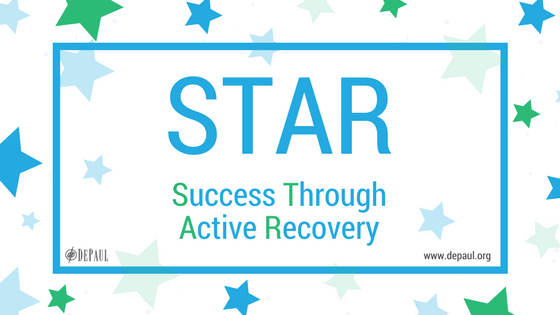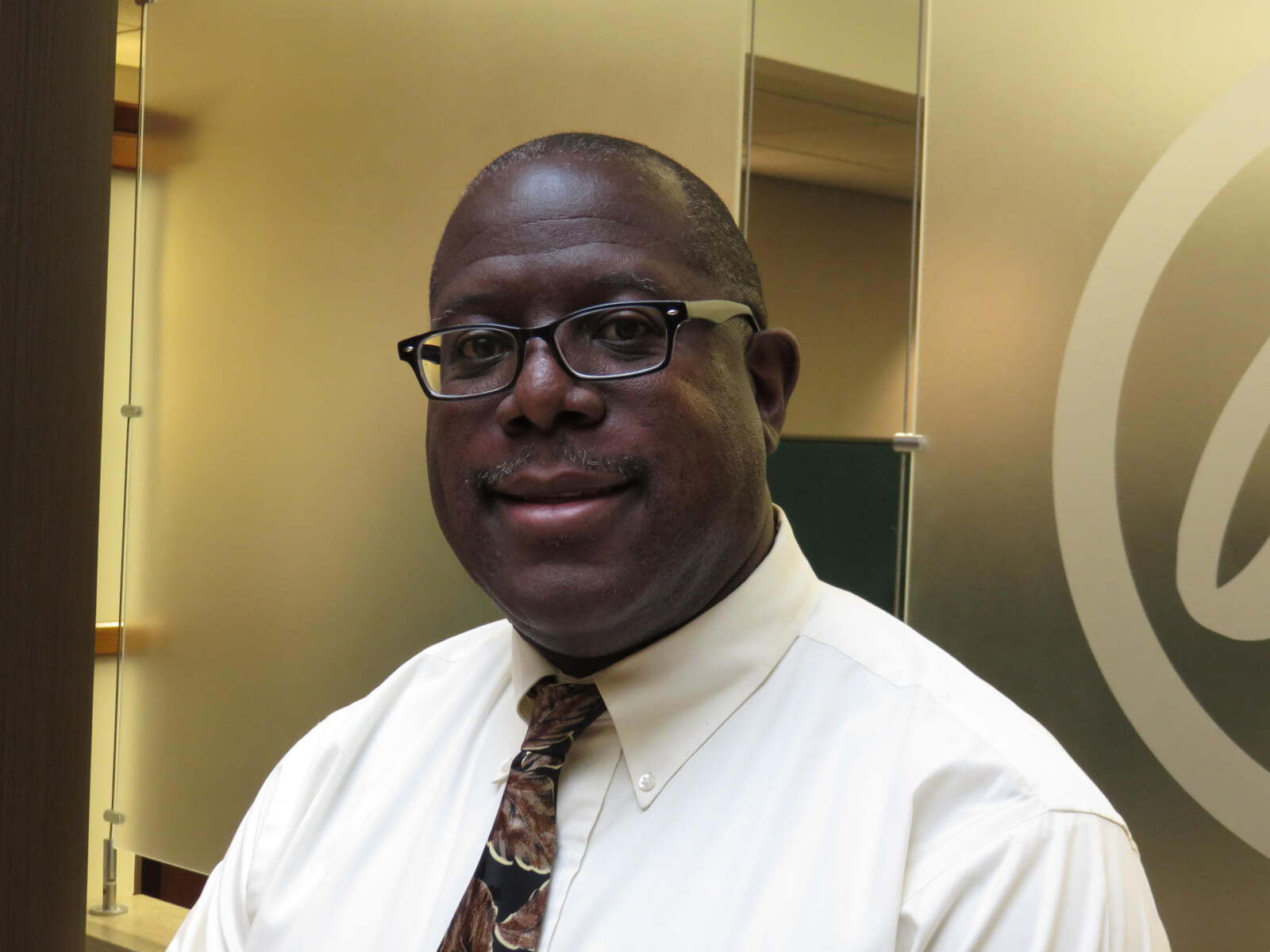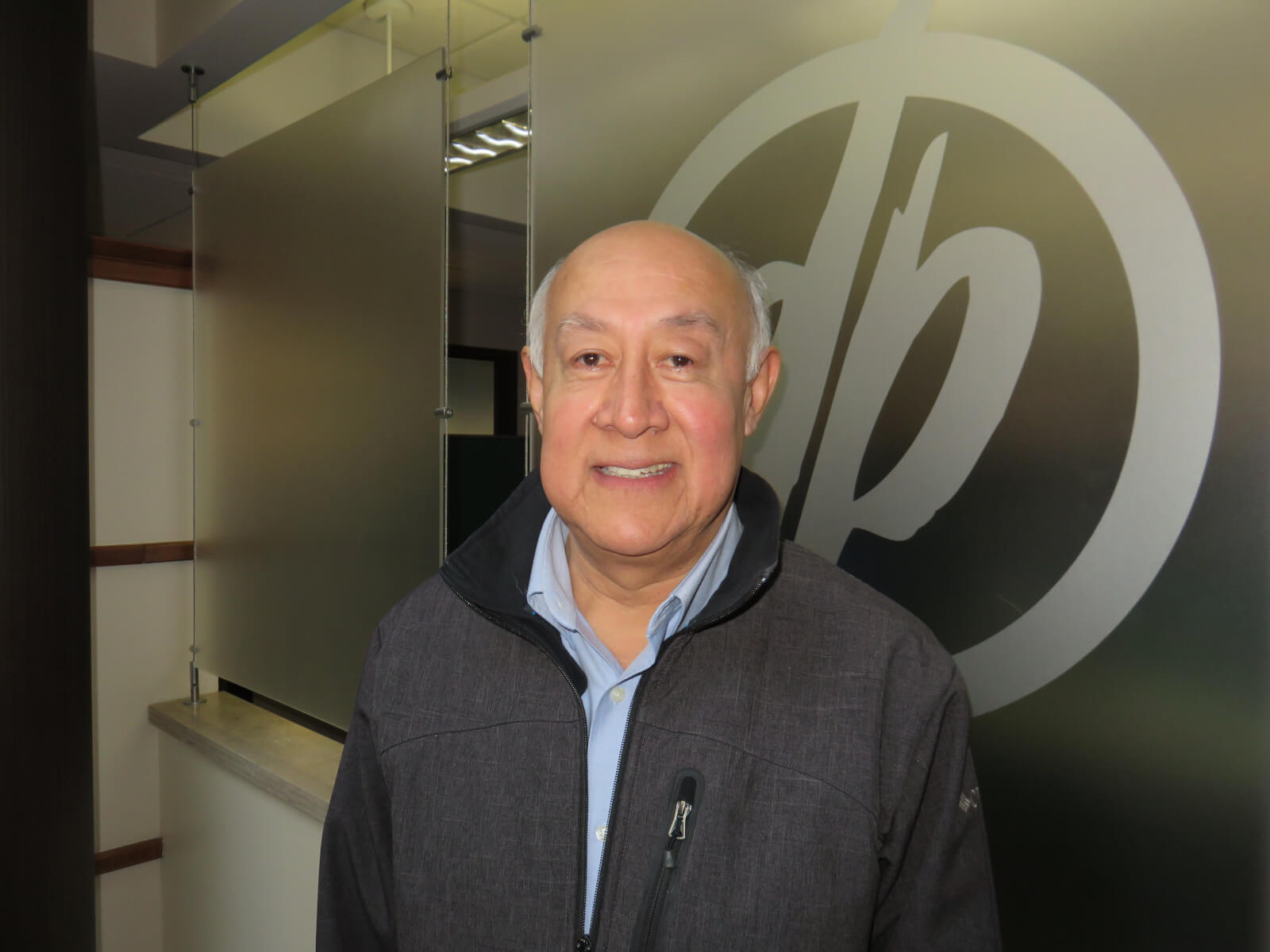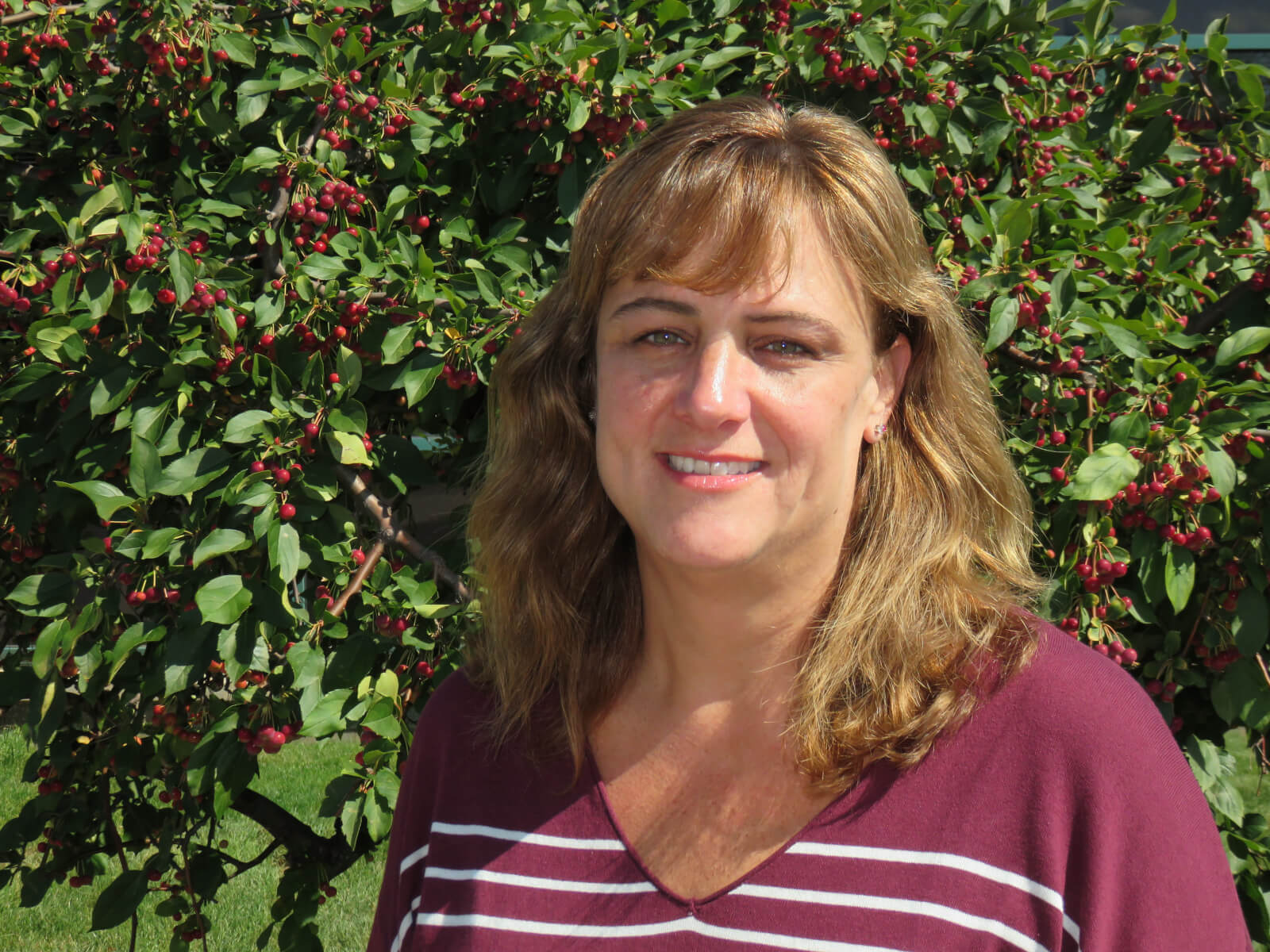Success Through Active Recovery (STAR)

By: Amy Cavalier, Communications/Development Coordinator
DePaul is working to support residents who have a mental health diagnosis coupled with substance or alcohol addiction using Success Through Active Recovery (STAR) Program. Launched in June 2017, the program includes support for clients and training for staff.
“It’s important to support the whole person,” said Program Director Tony Whitlow. “We need to make sure we’re not limiting the conversation to mental health. We have to address addiction if that’s part of their recovery plan.”
Supporting the client
Mental health and chemical dependency often go hand-in-hand, according to DePaul’s Mental Illness/Chemical Addiction Specialist Ben Narvaez.
“They are two different illnesses, but one thing we know is there is a prevalence for self-medicating in mental health,” he said. “Many clients began using when they were very young to cope with anxiety, voices, and depression.”

Tony Whitlow
Identifying clients who are struggling with addiction begins at the referral stage, said Whitlow.
“If someone is doing well, then the support we offer will be minimal, but if something changes and their addiction flares up, we’re going to provide more support,” he said.
Getting clients involved in peer support self-help groups or learning about relapse prevention are tools that can help get people really involved in their recovery, said Narvaez.
“There’s sobriety, which is quitting the use of substances, and then recovery, which is really the process of changing health and wellness,” Narvaez said. “Recovery is not only not using, but it’s really about improved quality of life.”
Dual-recovery, peer-led support groups are being offered in Rochester, New York at DePaul’s Neighborhood of the Arts Apartment Treatment Program and the Lyell Road Licensed Congregate Treatment Site. Meetings at the Ridgeview Commons Apartment Treatment Program will resume once renovations on the community are complete.

Ben Narvaez
“Some residents are confident, willing and able to go to Alcoholics Anonymous or Narcotics Anonymous meetings out there in the community and some would rather be in a small group with people they know,” said Narvaez.
Teaching residents coping skills, how to identify their triggers, how to refuse offers of substances, develop a daily routine and stay busy, and form sober friendships is important to prevent relapses, he added.
Narvaez said STAR has been successful in helping clients at various levels of recovery from those who are maintaining years of recovery to those just beginning to recognize unhealthy behaviors that can lead to substance abuse or the need for a higher level of care to prevent relapses.
“They are starting to realize they need to change their pattern for their health and quality of life,” he adds.
Supporting staff

Julie Edwards
“The STAR program will also provide staff with training on how to address the chemical dependency issue. Each site will have a STAR liason or expert and there will be staff meetings to share additional resources, talk about strategies or approaches, and increase knowledge about recovery opportunities,” said Senior Director of Apartment and Congregate Treatment Programs Julie Edwards.
Staff recently underwent a training on opiates with Director of the National Council on Alcoholism and Drug Dependence-Rochester Area, Jennifer Faringer.
“It was an opportunity for us to learn more about addiction and reinforce the idea of being more proactive, not waiting for the relapse, but making sure the recovery talk is ongoing,” said Whitlow.
Supervisors also underwent a training with Dr. Michael Simson, a member of DePaul’s Special Review Committee for Office of Mental Health Programs and Behavioral Health Medical Director at YourCare Health and Monroe Plan for Medical Care. Topics covered included how to address the issue of addiction with residents, important questions to ask, tips on talking to residents about addiction, and focusing on giving more time and attention to residents returning home from chemical dependency treatment.
Staff will meet regularly to collaborate and get feedback from staff at all levels on how to best address clients who might be struggling.
“We want to be sure it gets reinforced that we’re all in this together,” said Whitlow. “We’re one program and we’re going to brainstorm some ideas to support those most difficult cases.”
The overall goal is to provide staff with the training that helps identify the overall needs of a client and address them.
“Substances are everywhere,” said Whitlow. “It’s about trying to help people say no and reducing their level of vulnerability which can make it a lot easier to say no.”